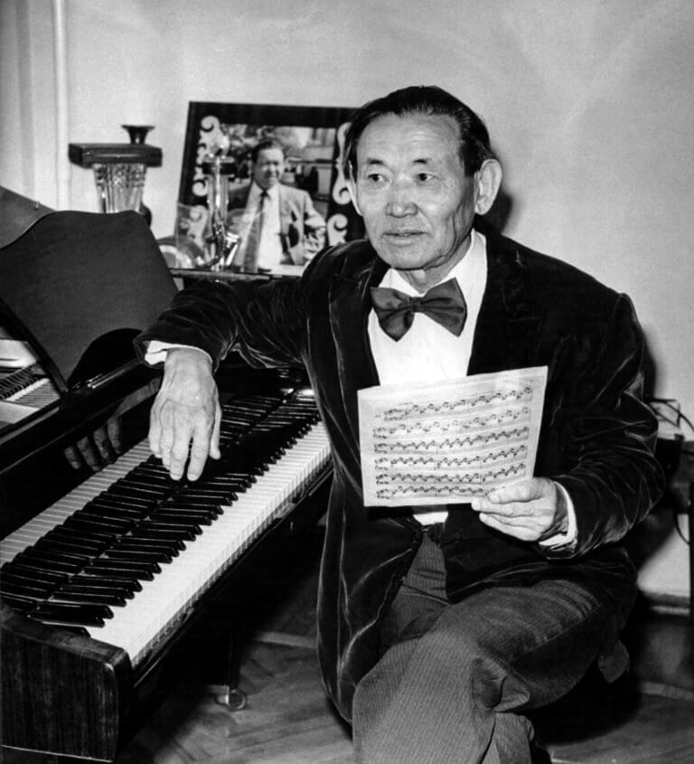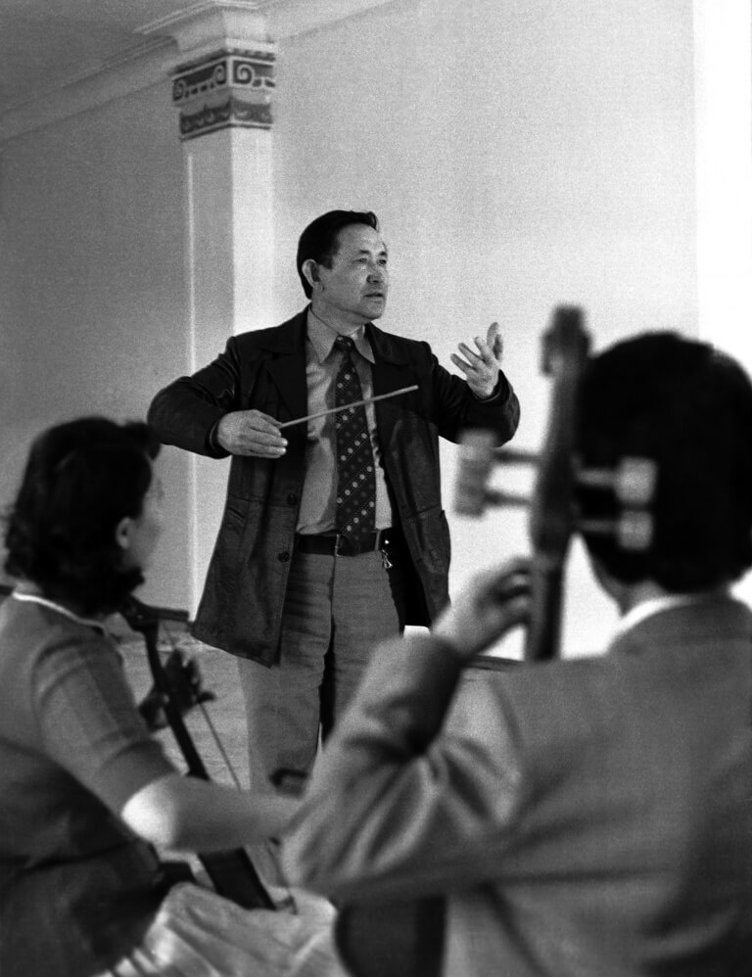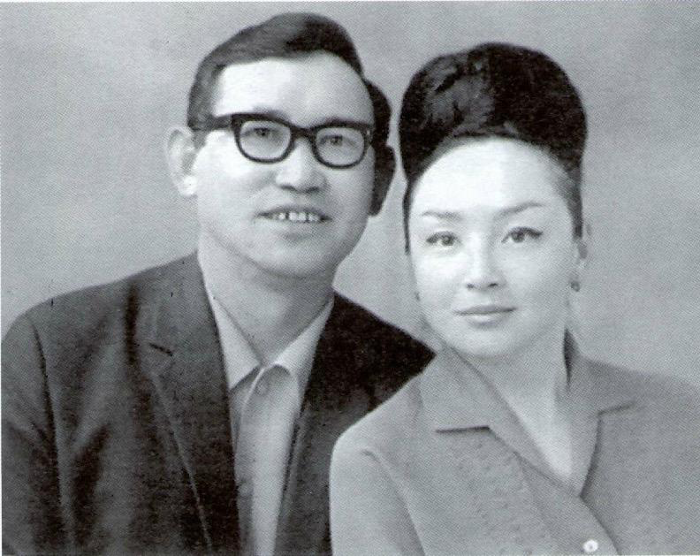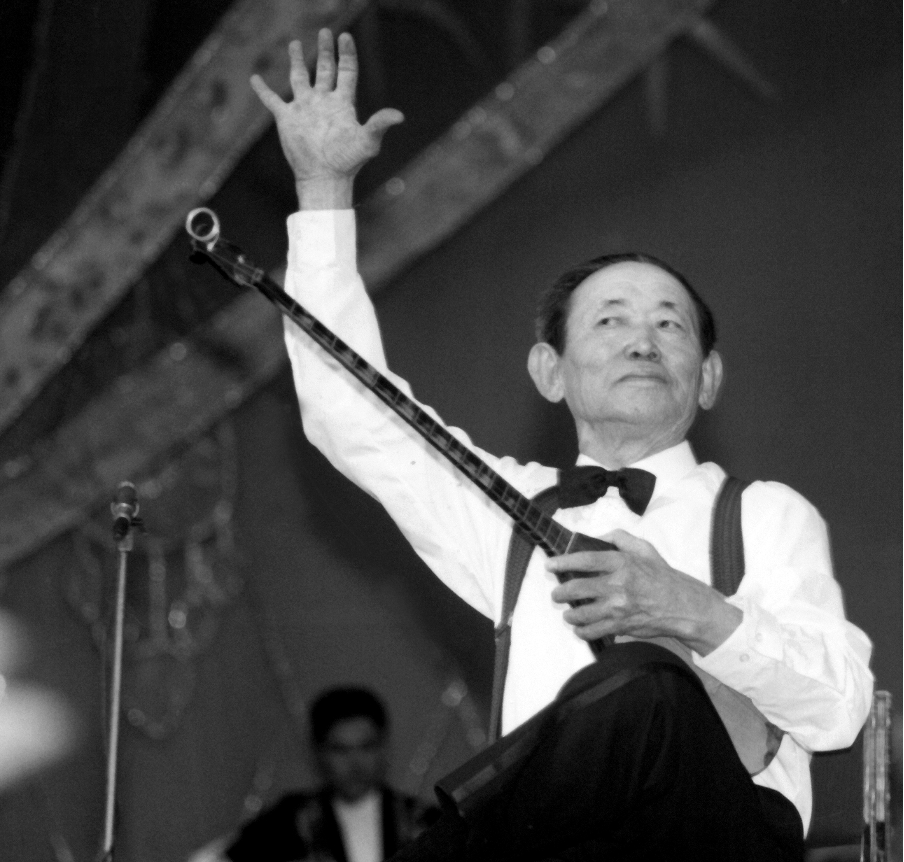Nurgissa Tilendiyev was born on April 1, 1927 in the Almaty region in the Shilikemer village in a musical family. His father was a dombrist and a connoisseur of folk songs, and his mother sang and played the accordion. The boy was destined to follow by his parents’ footsteps and dedicate his life to music.
Nurgissa grew up as a smart and very active child. His parents decided to teach him how to play the dombyra. At the age of four, he was given a piano, and at the age of six, his talent was recognized by the famous composer Akhmet Zhubanov. It was noted that at that time, the composer was looking for the dombrists for a new Orchestra of Kurmangazy academic folk instruments. Passing by Nurgissa’s house, Zhubanov heard the sounds of dombyra. He was amazed at the virtuosity of the performance and entered the house. A composer strongly recommended that the boy enroll in a music school.

Akhmet Zhubanov was not only a mentor for the young musician, but also a friend, whose respect and love he carried through his entire life. Tilendiyev said: “I owe him (Zhubanov) what I have become”.
During his studies at the college, Tilendiyev’s skills grew: at the age of 12, he was appointed the concertmaster of the orchestra, and at 14, he assisted the chief conductor.
In 1943, at the age of 16, Tilendiyev went to the front. He went through the battle path from the Kursk Bulge to the capture of Berlin, while being wounded several times in battle. He was awarded the medals “For Bravery!”, “For the capture of Berlin” and “For victory in the Great Patriotic War”.
In 1948, Nurgissa entered the Kurmangazy Conservatory and had studied at the department of folk instruments for two years, after which he went to the Moscow Conservatory. There, he had studied conducting with Nikolai Anosov, and practiced at the Bolshoi (Big) Theater.

In 1953, Nurgissa Atabaiuly was appointed as the chief conductor of the Abai Kazakh Opera and Ballet Theater. During the same period in the theater, people could enjoy his works: “Orteke” ballet-poem, “Dear friendship” ballet and “My Kazakhstan” cantata.
In 1961, Tilendiyev was appointed as the chief conductor of the Kurmangazy Kazakh State Academic Orchestra of National Instruments. This period of life is marked as the most fruitful in his career: he wrote the orchestral poem “Ata Tolgau”, the ouvertures “Khalyk Kuanyshy” (National Joy) and “Qairat” (Manfulness).

Tilendiyev’s name is closely related to his wife, actress Dariga Omarova. He dedicated the three works to her: “Aq Qusym” (My white bird), “Kua Bol” (Be the witness), “Konildi Bikesh” (Cheerful lady). She was the first one to hear the kyui “Alkissa”. According to the memoirs of his relatives, Nurgissa Atabaiuly wrote this kyui at night, as many of his works in principle. He woke up his wife with the words “I wrote a masterpiece!”
In 1968, Nurgissa Atabaiuly began working at the Kazakhfilm studio as the editor-in-chief of the music department. He wrote the music for the animated film "”Why is Swallow’s Tail Forked”, movies “Melon”, “Red Yurt”, “Chase in the Steppe”, “Journey to Childhood”, “Blue Route”, “My Brother”, “Hey you, cowboys!”, “Alpamys Goes to School”. And, Tilendiyev composed the “Akku” kyui for the “Kyz Zhibek” film.
In those fruitful years, Nurgissa Atabaiuly met and made friends with the famous poet Mukagali Makatayev. The composer wrote the music based on Makatayev’s poems, and they recorded 32 songs in creative tandem. “Saryjailau”, “Salem sagan Zhetіsu” (Hello, Zhetisu), “Oshaq otyn sonbesіn” (May the fire of the family hearth never go out) and “Men senі іzdedіm” (I was looking for you) are the most famous among them.
In 1981, Tilendiyev was asked to assemble the orchestra of Kazakh folk instruments “Otyrar sazy”. Nurgissa Atabaiuly accepted the offer and headed the famous band until the end of his life. On October 2, 1982, the first concert of the “Otyrar Sazy” orchestra took place in the building of the Philharmonic of Almaty, which was a tremendous success. Later on, the orchestra toured in Vietnam, North Korea, Turkey and the German Federal Republiс.

Nurgissa Tilendiyev passed away in 1998. He was buried at the mausoleum of Zhambyl in the Zhambyl village. Shortly before his death, Nurgissa Tilendiyev was awarded the Order of “Khalyk Kaharmany”.
After the death of Nurgissa Atabaiuly, the Otyrar Sazy orchestra was named after him. Since 2009, Nurgissa Atabaiuly’s daughter, Dinara Tilendiyeva has been the chief conductor and artistic director of the orchestra.
/Nurgissa Tilendiyev Memorial Museum is located in Almaty/




